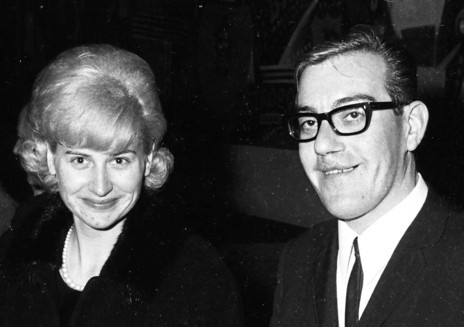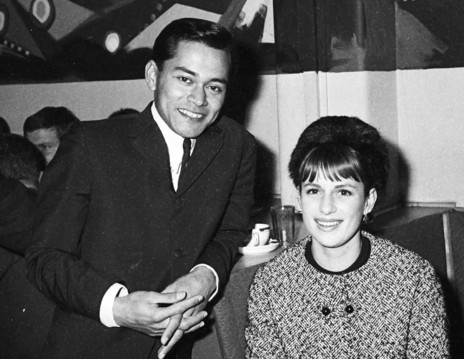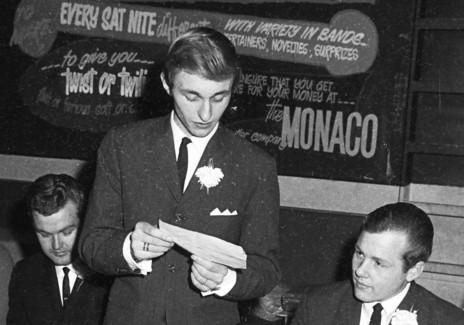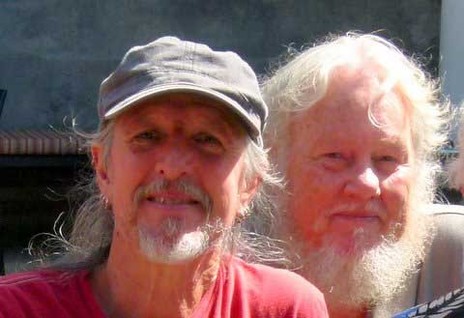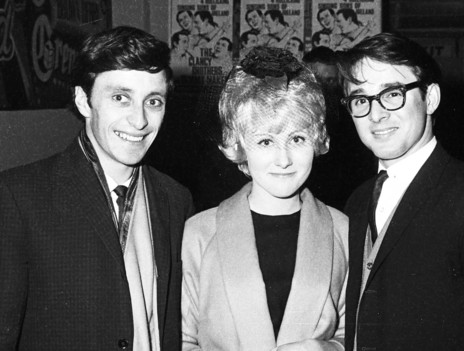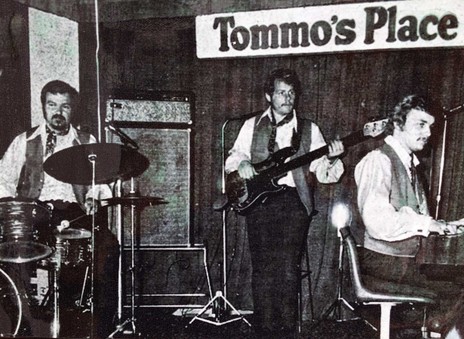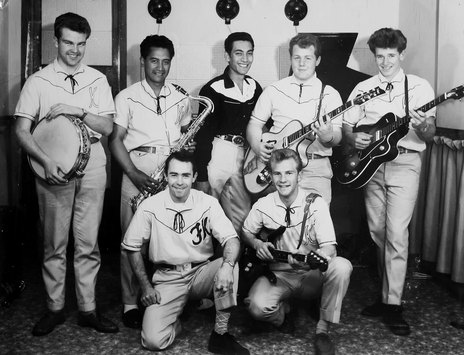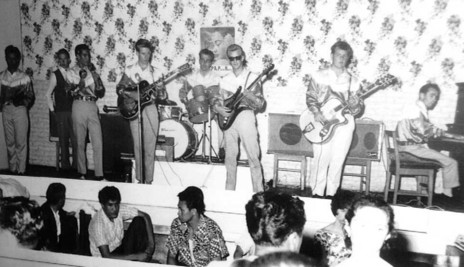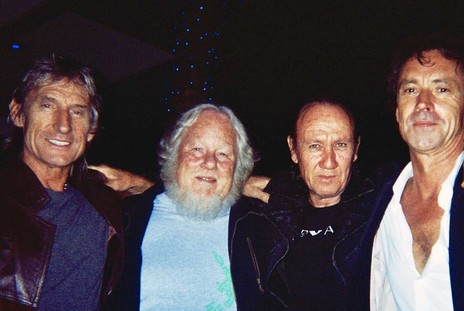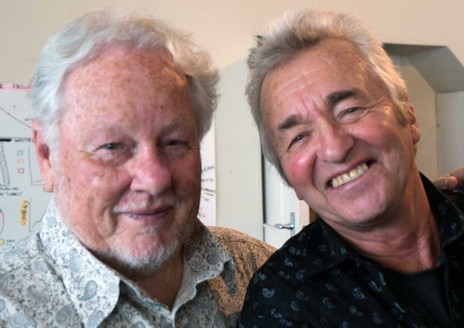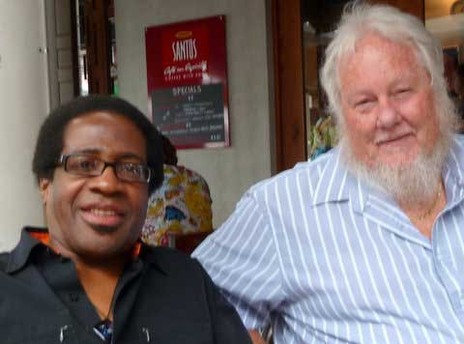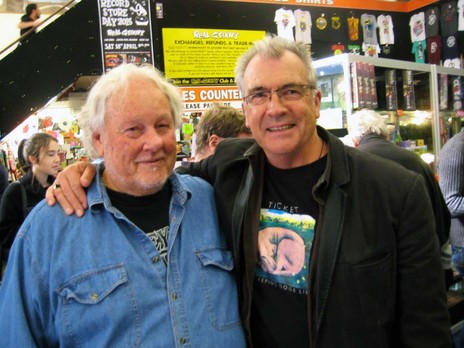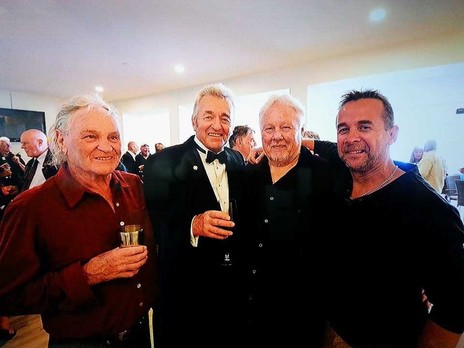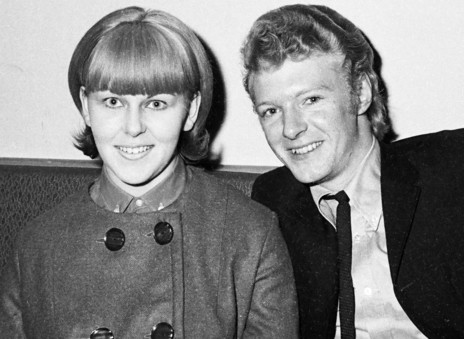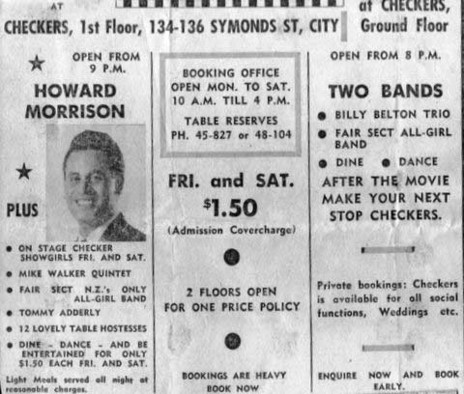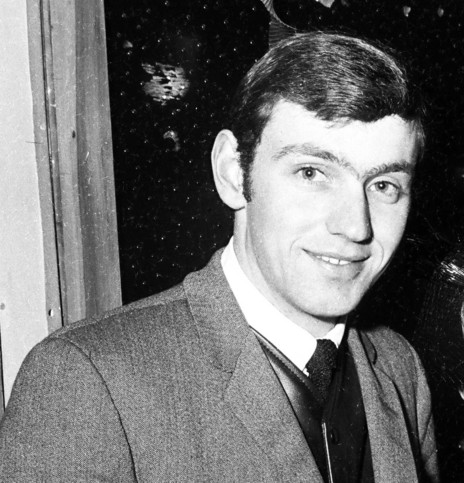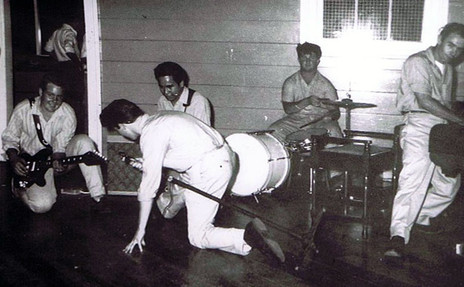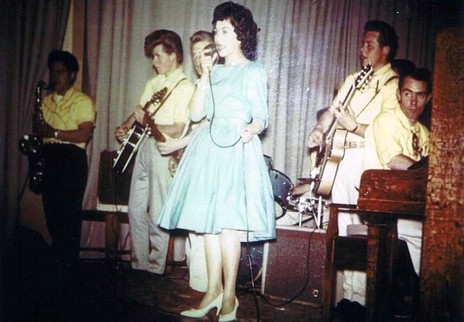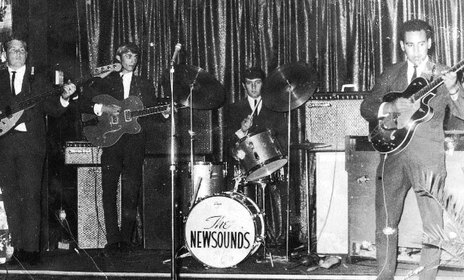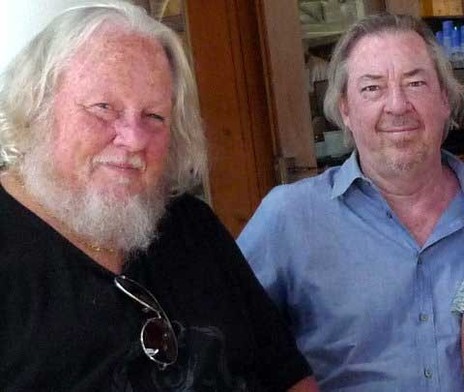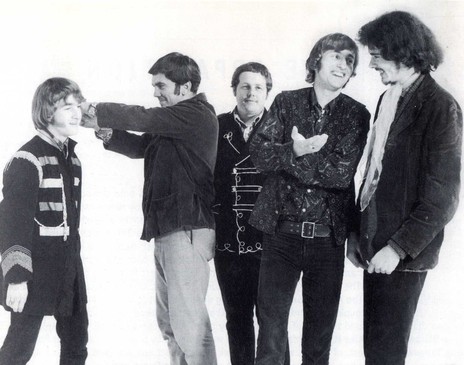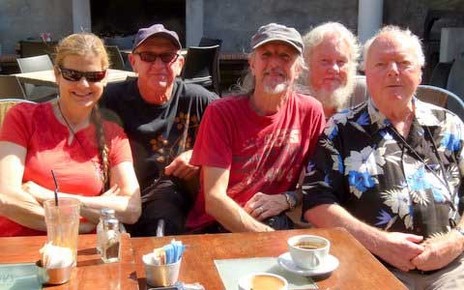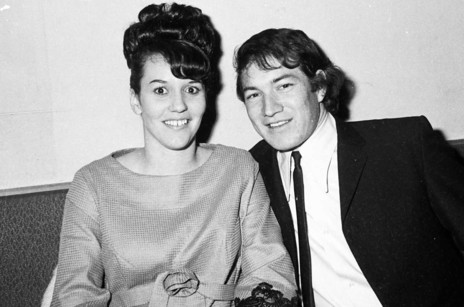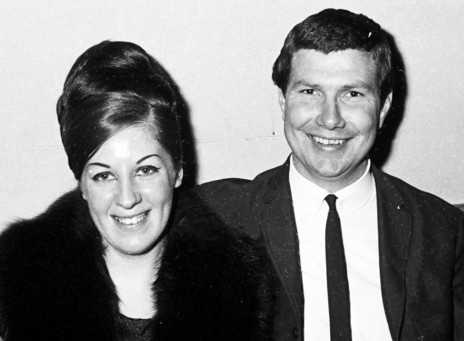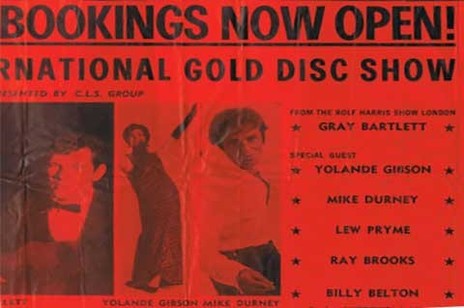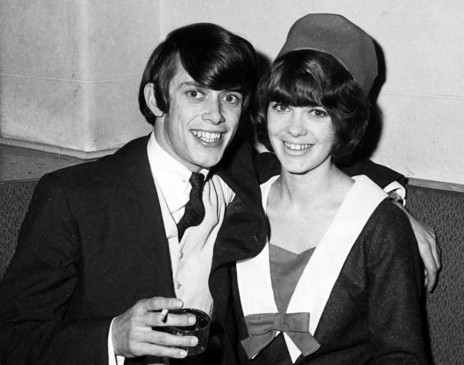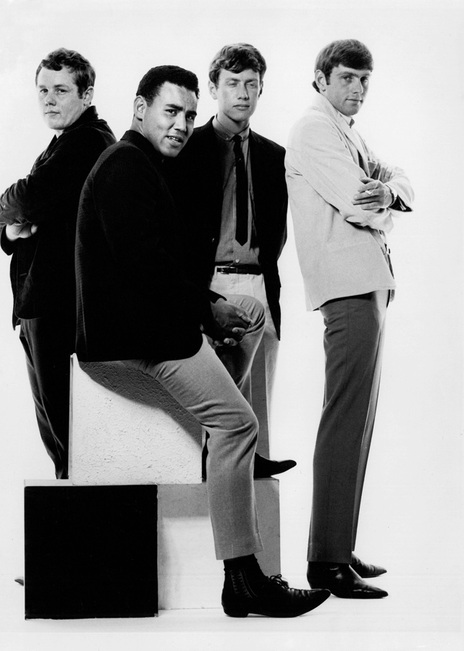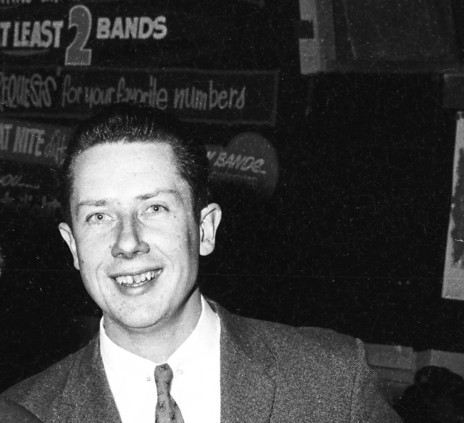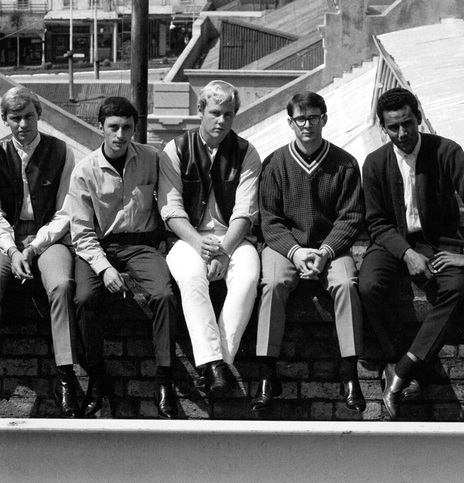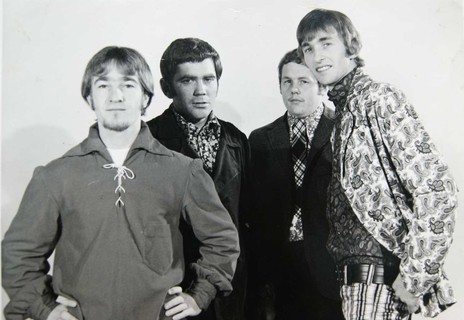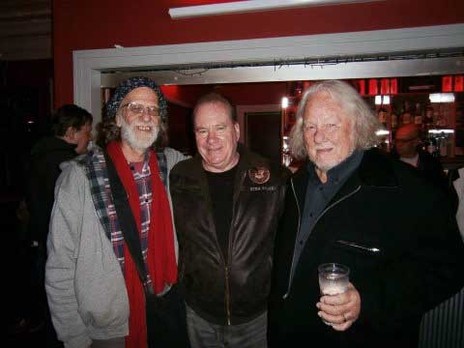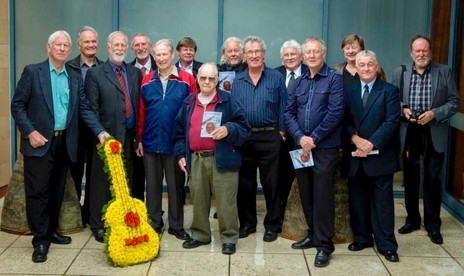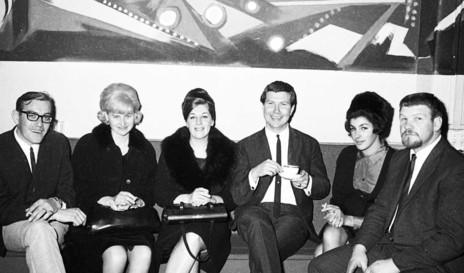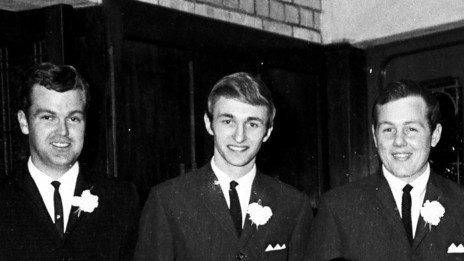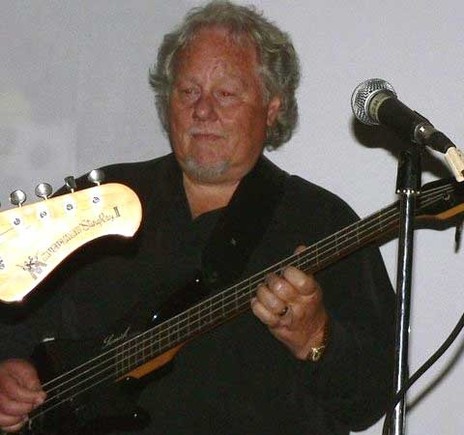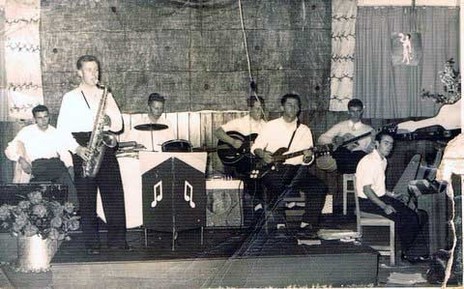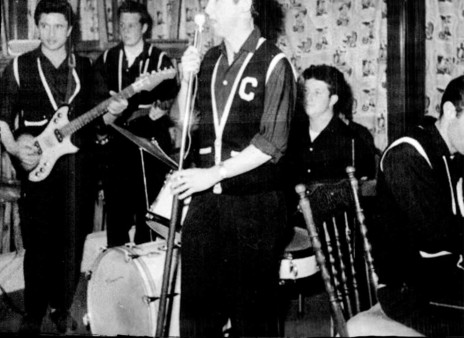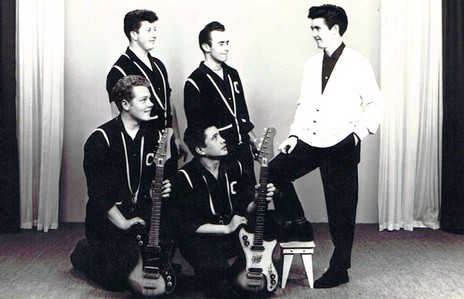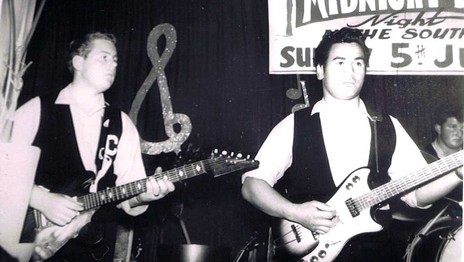Born 25 January 1944, Belton studied classical piano as a child but Bill Haley changed that plan and Belton took up guitar, receiving lessons from his cousin Dick Rogers (Red Hewitt and the Buccaneers) and Al Paget, amongst others; Herma was always helpful.
At 14, after reading a newspaper advertisement, he successfully auditioned for a dance band.
At 14, after reading a newspaper advertisement, he successfully auditioned for a dance band. “I can’t remember the band’s name, we played every Friday and Saturday at social and dances,” he says. “The pianist was Dave Smith, who became a very good friend. It was a strange line-up – three guitars, no bass, drums, saxophone and accordion.”
He and Smith spent a year with Jeff Bolton’s Commodores with guitarists Bob Wynyard (The Sundowners), Sonny Manihera and Tiger Purdy, playing teenage clubs in the Tamaki Yacht Club and Ponsonby Terrace. There was a short-lived Shadows style group featuring Tuhi Timoti on lead guitar before he and Dave Smith joined Freddie Keil and the Kavaliers. “I knew (drummer) Vic Williams through Sydney Eady’s and he advised me that Freddie was restructuring The Kavaliers and needed a pianist and a guitarist. Belton played rhythm guitar with them for nearly five years.
Freddie Keil was a huge Auckland draw card and a successful recording act. “Freddie was a star,” Belton remembers. “We had the best equipment, we all drove big American cars and we wore uniforms made by the Keil girls or imported from American Samoa by Freddie.”
Signed to Zodiac Records (at that stage it was still at the famous Saratoga Street studio under Eldred Stebbing’s house), the band recorded “around thirty tracks” including a 12” LP and a dozen 7” singles. Freddie Keil and the Kavaliers enjoyed youth club residencies in Ellerslie and Panmure and the big one, Eden Roskill in Dominion Road, was massive. “Crowds of up to one thousand kids every Sunday night,” says Belton.
There were other regular engagements, weekends in Northland and the Waikato, short tours for Benny Levin and Phil Warren. Beach resort residencies were popular every Christmas and The Kavaliers played in Mt Maunganui and Napier, even travelling to Christchurch for a weekend.
Popular at the time were town hall shows run by the various promoters featuring a number of local acts and The Kavaliers played on many of these.
When Eldred Stebbing bought his own nightspot, the Shiralee, The Kavaliers were one of the first resident bands.
When Eldred Stebbing bought his own nightspot, the Shiralee, The Kavaliers were one of the first resident bands.
“I had a day job during most of my playing days,” Belton says, “so I had to work around those obligations. The money was very good and even though I made more from the band than I did with the day job I always considered my security.
“It also helped my love of all American and later Jaguar, Porsche and MG cars. During my playing days I had over thirty of these, plus I was able to buy a new house at twenty years of age.”
In 1964, on the eve of a trip to Noumea, Stebbing summoned Belton and Smith to his office and advised them that the band was stripping back and their services were no longer required. “It came out of the blue and was a hell of a blow,” Belton recalls. “I think that The Invaders and The Meteors changed it all in Auckland, smaller groups, four or five members, not like The Kavaliers, which was a seven-piece.”
After The Kavaliers Belton decided to switch to bass guitar as he thought that would ensure more secure work even in smaller groups. “I knew Billy Kristian, who was sick in bed at the time, so I visited him for a few pointers. Billy taught me enough to get started.”
Belton’s first gig almost immediately as a bassist was with Bobby Davis & The Wanderers. “It dissolved not long after I came in,” Belton says, “and was stripped back and reformed by Bobby Davis as “The Bob D Five”. The Bob D Five had Ian Laird, Tony Blomfield (later of Ray Woolf and the Avengers) and Rod Gibson (ex-Max Merritt and later, The Newsounds). A single, ‘High School Confidential b/w ‘I Go Ape’ was the only recording.
In 1965 Belton was between bands again when Al Paget recruited him for a new outfit, a return to a big band sound with the rise of Memphis soul. The Newsounds featured Paget (guitar), Belton (bass), Rod Gibson (saxophone) Brian Biddick (trombone), Laurie Simpson (organ) and Ian Laird (drums). Missing was a decent lead singer.
“I knew Ray Woolf from the Kavaliers days,” Belton says, “and I’d heard that he had retired from music and was living and working in Papakura. I drove out and went from street to street, dairy to dairy, asking after him, and I eventually located him, our new lead singer.”
Playing residencies mostly around South Auckland, The Newsounds released two singles on Zodiac: ‘Summertime’, ‘Over You, ‘One In The Middle’, and ‘All Night Worker’ but never really cracked it. When Woolf went solo the band struggled for a couple of months before calling it a day in mid-1966.
By now Bill Belton was confident enough to handpick his own band. The Avengers (soon to be confused with the Wellington band of the same name) featured a changing line-up which included guitarists Tony Blomfield, Red McKelvie and Danny Stradwick, and drummers Andy Shackleton and Norris Nutsford. In the early days they featured two vocalists, Tommy Ferguson and Ray Woolf, and when Ferguson departed for The Brew they were billed as Ray Woolf & The Avengers.
As bandleader, Belton hired the Papatoetoe Town Hall for regular dances and Phil Warren used the group quite extensively. The group tended to do floor shows and guest spots rather than the long hours of residencies. RCA released singles ‘ Same Old Song’, ‘La La Lies’, ‘Turn To Stone’ and ‘You’ with ‘Crystal Ball’ being the most successful as a finalist in the 1967 Loxene Golden Disc awards. Woolf departed following a beach resort tour with Mr. Lee Grant and Sandy Edmonds and they continued for a spell as Concrete Lamb (drummer Norris Nutsford handled lead vocals).
Recordings for Concrete Lamb were ‘Take What You Need’, ‘Turn To Stone’, ‘Winchester Cathedral’ and ‘Bonnie and Clyde’. The latter two were on the Treble Cleff label.
Over the next year or two, Billy Belton was in a number of resident bands.
Over the next year or two, Billy Belton was in a number of resident bands. “I picked up work all the time, plus doing recording sessions, filling in, playing with people like Tuhi Timoti at a Fort Street restaurant, and Trix Willoughby (The Brew) at Surfside Ballroom, plus doing a tour with the Seekers.”
In 1970 he joined the resident band in the lounge bar of the Station Hotel (later relaunched as Tommo’s Place, named after Station Hotel owner Tom Madgwick), alongside pianist Mike Walker, drummer Frank Gibson Jr and Ray Woolf on vocals.
The Mike Walker Trio with Mike, Ray and Billy had several drummers – Frank Gibson Jr, Frank Conway and Tony Hopkins. After Mike Walker left Woolf and Belton continued with a new drummer, Vic Williams (ex-Kavaliers) and a new pianist, Mike Harvey, who went on to be a top pianist-arranger in the 1970s, winning the APRA Silver Scroll award many times. The new group was called Trinity.
“We recorded four live albums at the Station,” Belton says. “It was a five night a week cabaret featuring guest singers as floor shows – Bridget Allen, Ray Columbus, Jim McNaught, Suzanne Donaldson and most top NZ and Australian acts with Howard Morrison performing about every two months.
“Freddie Keil, Bradley Reeves and Lynn Whiteman and even Mike Harvey’s wife Jill came in as resident compere/ singers for a while after Ray Woolf left and we’d occasionally beef up the sounds with players like Colin Hemmingsen on saxophone and Chuck Morgan on guitar.
“Each Saturday after four hours at Tommo’s Place we would pack up and move to a wild club called The Colony and play rock and roll until 4am for a drunken, enthusiastic crowd. This was a tough night but great fun. With a change in ownership Tommo’s Place required a full time bass player. I was worn out so I left The Trinity, which soon changed into Salty Dogg.”
In 1975, now self-employed with a boat brokerage company (he later started the Stereo World chain of retail stores) and about to be married, Billy Belton packed away his bass. His last gig was a residency in a quartet with singer Linn Lorkin doing mainly Carole King material.
“For 15 years I had worked up to six nights a week plus held down a day job. It was time for a change. I would get occasional calls to play but I always declined. After a while the calls stopped and I lost touch with most of the people I’d been associated with. It’s only been recently, through Evan Silva [The Action, Compulsion] that I’ve started to play a little again, for the fun.”
Looking back, Belton says he was very fortunate to be a musician in a great period for music in New Zealand.
“I was always in successful bands that recorded, and through my job at Sydney Eady’s I knew enough musos that I would get offers and could pick and choose the best bands going. The era through the Sixties and Seventies was great for as much work as you wanted. The same top players seemed to form bands together, usually for a new residency. I was very, very lucky because I learned from and played with the very best players around, and that was a great privilege.”
Billy Belton passed away in New Plymouth on 11 July 2022.
